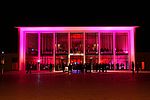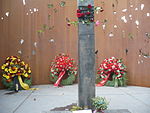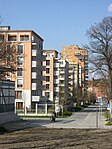Boxing at the 1972 Summer Olympics
These are the final results for the boxing competition at the 1972 Summer Olympics. The competition was held from 27 August to 10 September with the participation of 354 fighters from 80 countries. This was the first Olympic Games since 1948 to award bronze medals in boxing. From 1952 to 1968, the losing semifinalists were recognised on the podium, but were not named medal winners at the time. In 1970, the AIBA and IOC agreed to award bronze medals to semifinal losers, and this was the first Olympics where they were awarded during the medal ceremony. In that same decision, all semifinal losers from 1952 to 1968 were awarded bronze medals in 1970.
Excerpt from the Wikipedia article Boxing at the 1972 Summer Olympics (License: CC BY-SA 3.0, Authors).Boxing at the 1972 Summer Olympics
Hans-Fischer-Straße, Munich St. Paul (Ludwigsvorstadt-Isarvorstadt)
Geographical coordinates (GPS) Address Website Nearby Places Show on map
Geographical coordinates (GPS)
| Latitude | Longitude |
|---|---|
| N 48.1327 ° | E 11.5472 ° |
Address
Theresienwiese (Oktoberfest)
Hans-Fischer-Straße
80336 Munich, St. Paul (Ludwigsvorstadt-Isarvorstadt)
Bavaria, Germany
Open on Google Maps











